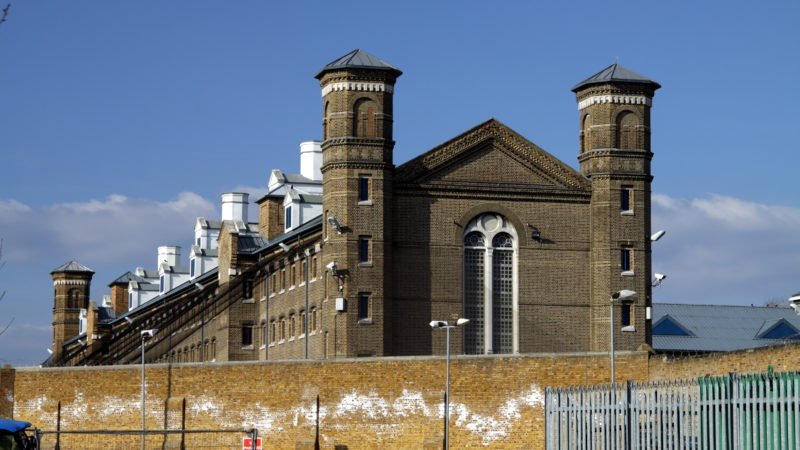The former Green Party leader on prisons and immigration detention centres amid the coronavirus crisis.

I have only been inside a prison once. That was Birmingham Jail, with Debating Matters, a day when prisoners were encouraged to develop their own voices.
I’ve strong memories of individuals flowering in the debate, but the most vivid image from that day was looking up at the stark forbidding walls and tiny windows. I was told drily by a staff member that the cells were built for one prisoner, but they now house two.
Before the coronavirus epidemic, our jails – in the country with the highest rate of imprisonment in Western Europe – were already in crisis. Austerity has seen the number of prison officers slashed, with disastrous impacts.
It is no wonder that with the coronavirus pandemic, the former chief inspector of prisons has called for the release of low-risk prisoners, those on remand and for the suspension of sentences of less than six months for non-violent offences. Unions representing officers have made a similar call. Northern Ireland and Scotland have already acted.
Boris Johnson’s government has taken some limited action, releasing 69 pregnant women and mothers in prison with their babies – but thus far the government has been resisting stronger action.
The longer it waits, the worse the problem is going to get: scores of prisoners and around 20 officers and prison escorts have already tested positive for coronavirus.
Already crime rates have fallen dramatically. Even now, people will be sentenced to short sentences – sentences that we know are ineffective in helping people deal with their behaviour – that put them and all of us at risk.
Releasing low-risk prisoners early is not just the humane thing to do. It is also a protective measure for all of society.
If Covid-19 is allowed to run rampant around the prisons, as it surely will at the current level of crowding, prison officers will inevitably take it out into the community – as will prisoners being released at the end of their sentences. It’s clearly a good reason to release anyone who is due for release in the next six months, at a minimum.
If prisoners remain in lockdown, without the possibility for exercise, education and work, then the risk of unrest in prisons is obvious. Not to mention the subsequent strains on emergency services called in to help prison officers, whose numbers will be depleted by the virus.
It is a pity that measures – which could have received at least limited democratic scrutiny – were not included in the Coronavirus Emergency Bill. But the Justice Secretary does not need legislation to act. He can use executive powers to release significant numbers of prisoners.
That’s not all that’s needed. Released prisoners will need support from the probation service, decimated by austerity and Chris Grayling’s disastrous privatisation. Many will need housing and incomes. Charities – provided we see the bail out of them that many are calling for – can help with some of this, but there needs to be significant government provision.
On the grounds of health and humanity, this cannot wait.
There’s another issue that doesn’t really deserve to be grouped with prisons, but inevitably will be. That is immigration detention centres, which hold people not accused of any crime, but who are nonetheless being held without choice.
Conditions in these have long been a grave concern. In most cases forced (or voluntary) removal of people from the UK will not be currently possible. There is no conceivable raison d’etre for holding people in them.
They should be closed down, and the people in them provided with decent housing and a proper income where necessary.
As should all asylum-seekers: no one should ever be trying to live on £37.75 a week on the hated ASPEN card that can only be used in certain shops. They should be allowed to work to contribute to society where practical.
The exercise of the coercive power of the state is something that should always be used with great care, and limits. That’s even more salient in the time of coronavirus.
Natalie Bennett is a member of the House of Lords, former leader of the Green Party of England and Wales and a contributing editor of Left Foot Forward.
Left Foot Forward doesn't have the backing of big business or billionaires. We rely on the kind and generous support of ordinary people like you.
You can support hard-hitting journalism that holds the right to account, provides a forum for debate among progressives, and covers the stories the rest of the media ignore. Donate today.



